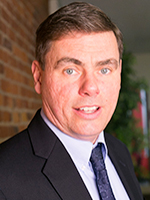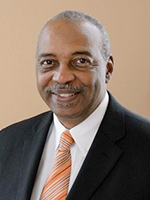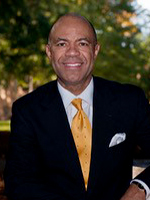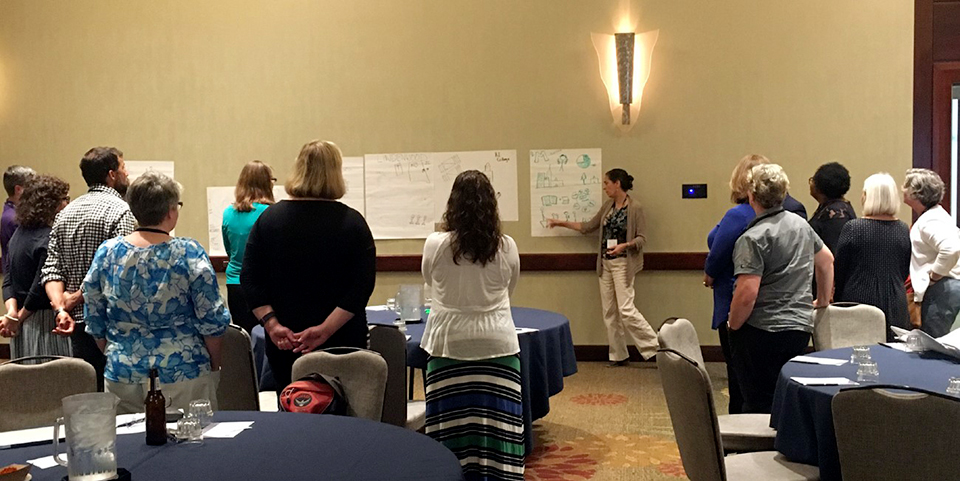11 Sep2017
By Christina Wright Fields

New York’s Marist College is the latest AACTE member institution to join the Holmes Program. For information about how to join the program, contact Tim Finklea at tfinklea@aacte.org. The views expressed in this post do not necessarily reflect the views of AACTE.
This summer, the Education Department at Marist College partnered with the Beacon City School District to join AACTE’s Holmes Cadet Program. Marist College, located in New York’s Mid-Hudson Valley, is committed to student success, innovation, and providing for social good. Joining the Holmes Cadet network supported Marist’s efforts to diversify the teacher pipeline, while connecting them to a national network of students and faculty who were passionate about the same cause.
08 Sep2017
House and Senate Move on Education Funding Bills
By Deborah Koolbeck

Congress returned from August recess and hit the ground running on its work funding the federal government as the September 30 deadline looms.
U.S. House of Representatives Action
You might recall that the House passed four appropriations bills as a single package at the end of July. The House determined it would move the eight remaining appropriations bills to the floor as a single package – including the Labor, Health and Human Services, Education, and Related Agencies (Labor-H) bill – immediately after August recess. A call for amendments went out in early August.
05 Sep2017
By Amy Vessel
This article is the last in a series of three showcasing the transformation of preservice field experiences at Louisiana Tech University. Read the first article here and the second here. The views expressed in this post do not necessarily reflect the views of AACTE.
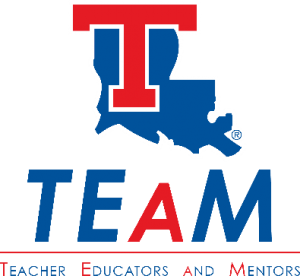
In a traditional student teaching experience, the school and mentor agree to host a teacher candidate in the classroom for 10-15 weeks, which can be viewed as a short-term accommodation that is not integral to the school community. In a full-year clinical residency, however, the importance of the mentor-resident placement is essential to the success of the school year for all involved. Therefore, the TEAM (Teacher Educators and Mentors) Model Clinical Residency Center at Louisiana Tech University has made the design of a quality placement procedure a priority.
In the TEAM Model timeline, residents and mentors apply in April/May to participate in the full-year clinical residency. Upon university, school, and district approval of the participants, an electronic clinical styles inventory is distributed to all participants in late May/June, and all placements are finalized in July. On the online inventory, mentors and residents rate their own traits around personality, planning, teaching, professionalism, and other areas in order to better identify their clinical style.
05 Sep2017
By Kristin McCabe

The American Association of State Colleges and Universities (AASCU) has selected a professional development partnership of the University of Toledo (OH) to receive the 2017 Christa McAuliffe Excellence in Teacher Education Award. The award will be presented October 22 at the AASCU Annual Meeting in La Jolla, California.
The winning program, NURTURES (Networking Urban Resources with Teachers and University to enRich Early Childhood Science), aims to improve the science learning and readiness scores of preschool through third grade students in the Toledo area. NURTURES is a collaboration among the university’s education, engineering, and natural science faculty; local daycare centers and nursery schools; informal science centers; and other community resources to create a complementary, integrated system of science education. The program enhances teacher understanding of science content to improve classroom practices and offers classroom extension activities and family learning opportunities.
05 Sep2017
By Zachary VanHouten

As classes resume at your institution, so too does the work of Congress, which returns to Washington today following its August recess. The disaster relief for Hurricane Harvey may upend the Congressional agenda, potentially shuffling a laundry list of items Congress needs to address, including funding for FY18 and where the federal dollars will flow.
With all of this going on, it has never been more important to remain informed and engaged – and AACTE’s members-only Federal Update webinars help you do just that. You can sign up now for this month’s webinars, September 19 or 20 (see below); you can also view archived webinars and presentation slides through this link.
05 Sep2017
By Zachary VanHouten
In order to support the communities affected by Hurricane Harvey and its aftermath, the U.S. Department of Education has activated its emergency response contact center for school districts and institutions of higher education in the Gulf Coast region. The Department is also coordinating efforts with the Texas Education Agency, the Louisiana Department of Education, and the institutions and districts in impacted areas.
30 Aug2017
By Aaron Goldstein

Seven state chapters of AACTE will share $50,000 in funding from the 2017 State Chapter Support Grant competition.
AACTE is pleased to support these state chapters as they develop new initiatives and projects focused on advocacy, program quality, and chapter development. For the 6th year, these grants will help strengthen AACTE’s relationship with our state chapters.
29 Aug2017
By Erisel Cruz
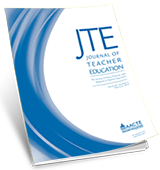
Have you read the September/October 2017 issue of the Journal of Teacher Education (JTE) yet? It is now available online and hitting desks around the country. See what Volume 68 Number 4 has to offer!
- In this month’s editorial, “How Teacher Education Can Elevate Teacher Quality: Evidence From Research,” members of the JTE editorial team at Michigan State University highlight the issue’s four articles. Robert E. Floden, Gail Richmond, Corey Drake, and Emery Petchauer note the papers’ findings and the significance of their topics to various stakeholders in teacher preparation.
29 Aug2017
By Rodrick Lucero
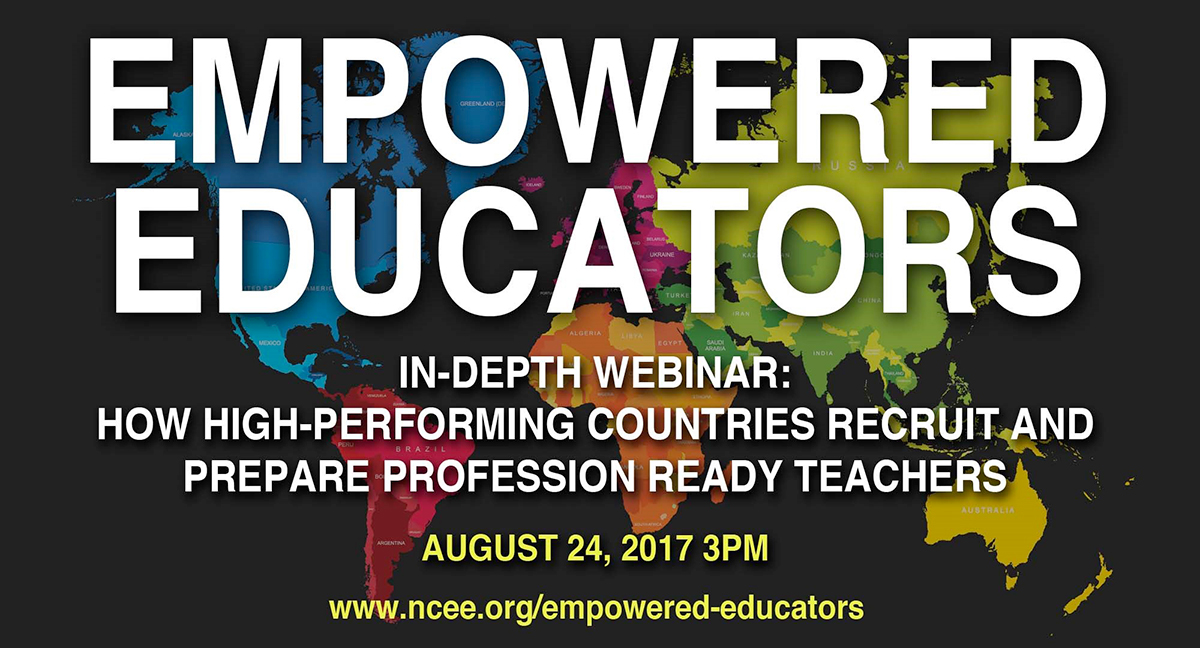
Last week, I was honored to participate in a webinar discussing Empowered Educators, an international comparative study of teacher and teaching quality in the world’s top-performing education systems. Hosted by the National Center on Education and the Economy (NCEE), whose Center on International Education Benchmarking sponsored the study, this event featured members of the research team discussing specific lessons for the recruitment and preparation of profession-ready teachers.
Lead researcher Linda Darling-Hammond (of the Learning Policy Institute and Stanford University) was joined by NCEE President and CEO Marc Tucker for an introduction of the study. Other researchers on this webinar were Finnish researcher Pasi Sahlberg, who helped lead the Empowered Educators case study on Finland, and A. Lin Goodwin of Teachers College, Columbia University (NY), who worked on the Singapore branch of the study. I served as a discussant, as did Mary Sandy, executive director of the California Commission on Teacher Credentialing.
29 Aug2017
By Cole Dittmer

This article, originally published here, is reposted with permission from the East Carolina University News Services.
East Carolina University’s youngest students got their first look inside the ECU Lab School during open house on Aug. 24.
“I love it, everything,” exclaimed fourth-grader Breanna Daniels after seeing her new classroom.
29 Aug2017
By Jerrica Thurman
This month’s episode of Education Talk Radio spotlighted AACTE’s national Black & Hispanic/Latino Male Teachers Initiative Networked Improvement Community (NIC) and other efforts to increase men of color in the teaching workforce. In the August 9 show, host Larry Jacobs interviewed Director of College Access and Completion Michael Dennehy of Boston University (MA), Director of Call Me MISTER Roy Jones of Clemson University (SC), Associate Professor Shatriya Collier-Stewart of California State University-Northridge, Executive Director Lemuel Watson of the Center for Innovation in Higher Education at the University of South Carolina, and Behavior Interventionist Ryan Jeffery at Fairfax County Public Schools (VA).
According to the National Center for Education Statistics, just 2% of public school teachers across the country are Black males and fewer are Hispanic males. AACTE’s national NIC initiative helps institutions identify innovative strategies to increase the percentage of Black and Hispanic/Latino men receiving initial teaching certification through their preparation programs.
29 Aug2017
By Kristin McCabe
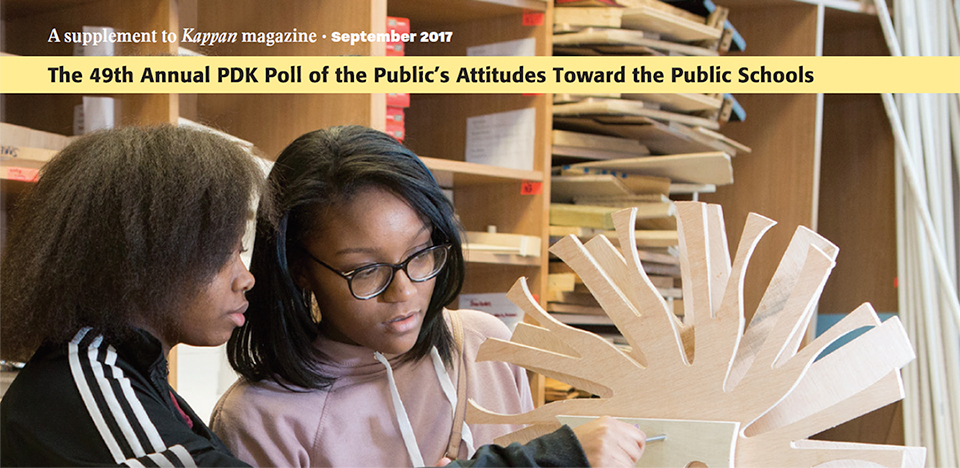
“The three R’s alone don’t cut it anymore,” announces a report released August 28 on the 49th annual PDK Poll of the Public’s Attitudes Toward the Public Schools. In addition to solid academics, Americans want their schools to provide job training, more explicit focus on social-emotional skills, and “wraparound” services like health centers and afterschool programs. Respondents also want students to learn in diverse classrooms and are skeptical about vouchers and the value of standardized tests.
This year’s survey sought to learn more about last year’s discovery of a desire among the American public for schools to focus less on honors classes and more on career and technical education. The new data suggest that the public really wants both strong academics and job preparation, including classes focused on career skills, technology and engineering, and programs leading to a professional certificate or license. The less satisfied respondents are with their local schools, the more likely they are to say schools should offer more job/career skills classes.
22 Aug2017
By Lynn M. Gangone
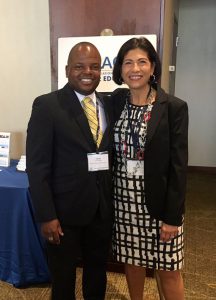
The AACTE Quality Support Workshop this month was an inspirational model of improvement in action. During my 3 days in Minneapolis, I witnessed a profound commitment among participants to ensure high levels of quality in their programs. Understanding standards and evidence more deeply, using data more strategically, and creating more effective quality assurance systems were some of the topics covered.
Dedication to continuous improvement is shared by AACTE’s members and the Association itself. To that end, the AACTE team is focusing the first part of this new academic year on an extensive review of the organization’s operations and programs, facilitated by an experienced consulting firm with assistance from a staff steering committee (see this recent article by Vice President Rod Lucero). In addition, an Association-wide member survey launches in September, and we’re counting on your participation to inform our work going forward. AACTE is always looking to improve and meet the changing needs of the membership.
22 Aug2017
By Rodrick Lucero
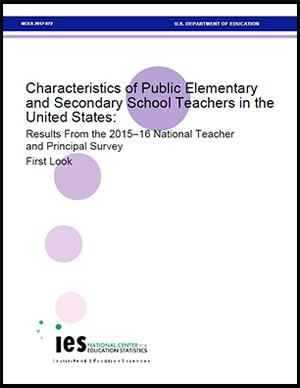
Last week, the National Center for Education Statistics (NCES) released initial data from the 2015-2016 National Teacher and Principal Survey, providing the latest nationwide snapshot of the characteristics of public school teachers. (Results of the school-level survey are being released today, and principal-level data are available here.) The “First Look” report on the teacher survey (download PDF here) shows the education workforce has grown slightly more female (77% compared to 76%) and slightly less White (80% compared to 82%) than it was 4 years ago – although NCES cautions that comparisons are somewhat imprecise because some of the questions were worded differently or drew on different sources than in the former Schools and Staffing Survey, on which the new survey is based.
A recent article in Education Week highlights key data and comparisons between this survey and the last, noting that the education profession has made some advancements in diversifying the teaching workforce. However, these modest gains may be more conditional than intentional, and the survey spotlights continued trouble spots such as low pay and uneven assignment of teacher expertise. What this article says to me is that we must continue to work every day to make teaching a worthy career option, valued for its contributions to the democratic fabric of our society – especially among the most underrepresented demographics. As a profession, we have an ongoing imperative to attract highly motivated, diverse, innovative, smart educators into the profession and support them with programs rich in the pedagogy and content that will serve the nation’s young people well into the future.
22 Aug2017
By Michelle Kotek and Sara Hiller
Participants share their stories and engage in scenario planning during a session led by Jacob Easley II (Eastern Connecticut State University) and Valeisha Ellis (Spelman College).
AACTE held its second Quality Support Workshop August 10-12 in Minneapolis, Minnesota, convening educator preparation professionals for a highly interactive, expert-facilitated event focused on quality assurance, assessment, accreditation, and more. More than 150 faculty, administrators, assessment and accreditation coordinators, and other educators engaged in the workshop, continuing the momentum established in the inaugural AACTE Quality Support Workshop in Texas last spring.
















